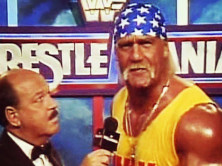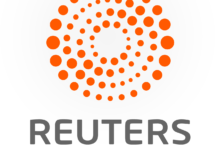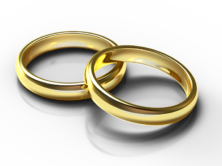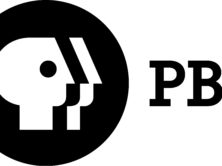Bloggers, including Margaret Somerville, have questioned the ethics of WikiLeaks. Somerville's blogpost (screenshot detail above) ultimately decided that she finds WikiLeaks unethical. (Credit: Mercatornet)
WikiLeaks has dominated news stories the past two weeks as constant feeds of news updates are published.
iMediaEthics searched on Google to see what bloggers and journalists are saying about the ethics of WikiLeaks. Of the dozen plus articles we randomly sampled, the consensus is critical about WikiLeaks’ ethics. Some see WikiLeaks are purely unethical, while others see WikiLeaks as partly good and partly needing to step-up its ethics. Here are examples:
Margaret Somerville, a blogger, wrote Dec. 10 in an attempt to look at the bigger picture of the ethics involved in reporting on WikiLeaks. Somerville’s article, “WikiLeaks: An Ethical Analysis,” is available here.
Somerville is a blogger for MercatorNet, a blog that describes its “ideals” as “reframing ethical and policy debates in terms of human dignity.” It’s also a project of the Australian New Media Foundation.
Summarizing her post, Somerville wrote that she ended up finding herself in agreement with U.S. Secretary of State Hillary Clinton’s stance on WikiLeaks.
“As she said, Wikileaks is neither laudatory nor brave. On balance, it is a force for serious harm even allowing that it could entail some good,” Somerville wrote. She explained that she sides with Clinton because it’s not been determined yet if “the world is a better and safer place because of” WikiLeaks.
What she does believe, though, is that “WikiLeaks involves grossly unethical conduct, some of which is also illegal.”
In order to determine the ethics involved with WikiLeaks, Somerville argued the public has to decide if it believes the end can justify the means. As she wrote, WikiLeaks published documents provided as a result of theft.
“If we believe that this means of obtaining the information was fundamentally wrong, and that even good ends—let alone seriously harmful ones—do not justify using wrong means, then using that information would be unethical. If, on the other hand, we believe that laudatory ends can justify unacceptable means and we regard the Wikileaks as having such ends, we might see use of the information as ethical. “
Somerville wondered if WikiLeaks and the news organizations that have worked with WikiLeaks are equally responsible for any consequences of the leaks.
“Assuming for the sake of argument that the WikiLeaks conduct is evil, the media and web servers who are disseminating the information are not parties coming onto the scene after the evil conduct has been undertaken,” she wrote. “They are playing a direct and active role in that conduct.”
Therefore, if the public determines WikiLeaks to be unethical, does that mean the New York Times, the Guardian, Der Spiegel, Le Monde and El Pais are as well?
Somerville wrote that WikiLeaks has shown “the power of one person using the new technoscience.” She wrote that WikiLeaks “will likely damage every element” of society. But, she also questioned if WikiLeaks is gossip or a step forward in openness, and when it is ethically OK to open secrets.
“Although we work from a basic presumption that openness and transparency are morally and ethically sound…at the very least, we need to question whether the very openness and transparency promoted by WikiLeaks is, in fact, morally and ethically sound.”
That statement mirrored comments made by journalism ethicist Stephen J.A. Ward’s call for WikiLeaks to publish its own code of ethics. He further stated that he sees WikiLeaks as needing “open and responsible ethical policies.”
Likewise, Larry Womack, the former associate news editor for the Huffington Post, accused Assange of having “shown himself to have no ethical standards as a journalist, blogger or human being.”
While acknowledging the “hard news” stories WikiLeaks broke, including reports about Kenya, Gitmo, and the Ivory Coast, Womack criticized WikiLeaks for not treating the information it leaks more responsbily.
Instead of publishing select, newsworthy information and documents, WikiLeaks publishes the full documents or leaked information, which Womack criticized. Womack suggested that the news outlets that have reported on WikiLeaks – notably The New York Times, The Guardian and Der Spiegel — are the ones who have been acting responsibally. The news outlets have mined through the leaks and reported on what they find newsworthy while claiming to redact information which could harm people.
Regarding the diplomatic cables, Womack wrote:
“By publishing these cables as they were obtained, Assange has once again proved himself a fanatic incapable of distinguishing between newsworthy content and details that will endanger people working to make the world safer.”
Discovery News’ Benjamin Radford wrote Nov. 30 arguing “Some of what WikiLeaks does is ethical, and some is not.” Radford criticized WikiLeaks for not differentiating between serious information being leaked and more trivial, “gossip”-like information being published — just for the sake of being published.
NPR questioned if WikiLeaks’ publishing is “brave or unethical.” Hear the program here. While one caller defended WikiLeaks, another, a former political economic reporting officer, expressed concern that the publication of the cables will make it harder for diplomats to earn source confidence while researching countries.
And Reporters without Border has publicly defended WikiLeaks from criticism, noting that WikiLeaks “has a right under the U.S. Constitution’s First Amendment to publish these documents and is even playing a useful role by making them available to journalists and the greater public.”
See iMediaEthics’ coverage of WikiLeaks here.
UPDATE: 12/21/2010 10:22 AM EST: Dr. Rushworth M. Kidder, the founder and president of the Institute for Global Ethics, wrote about the “Ethics of WikiLeaks” here.






Comments Terms and Conditions